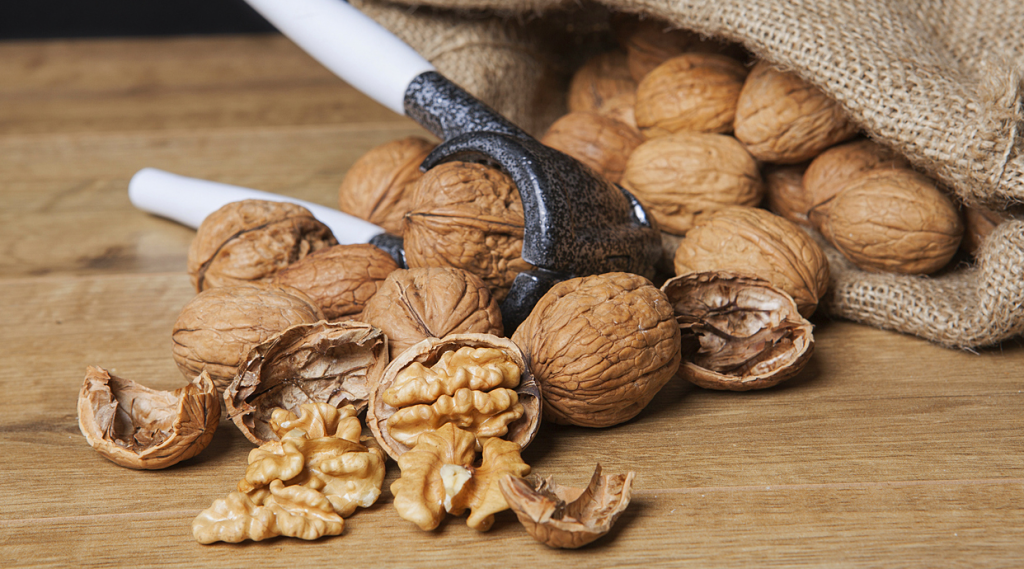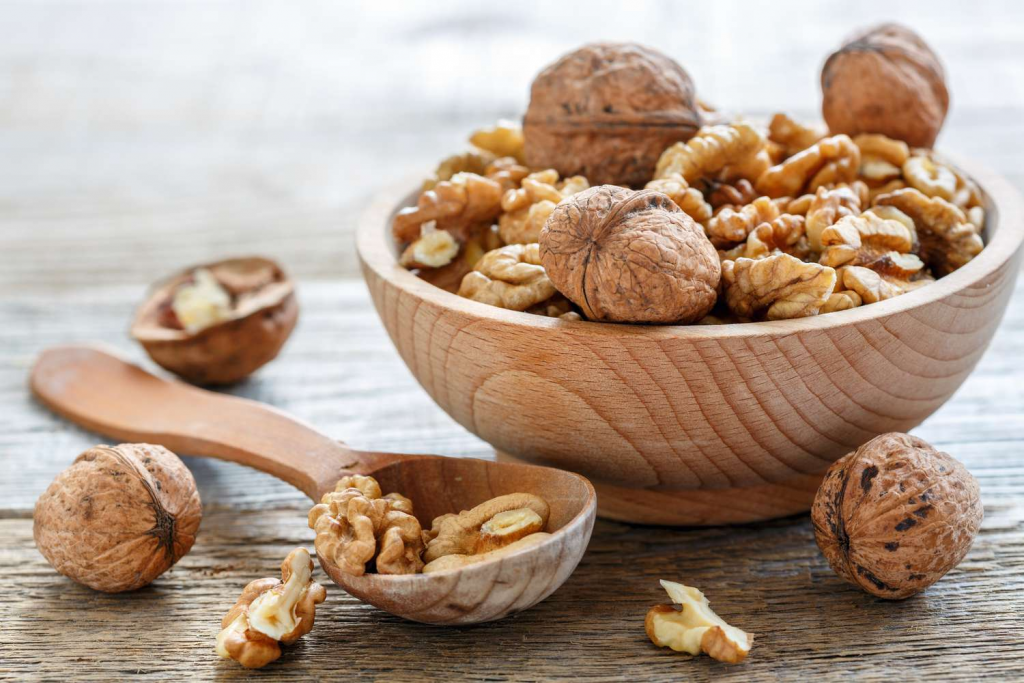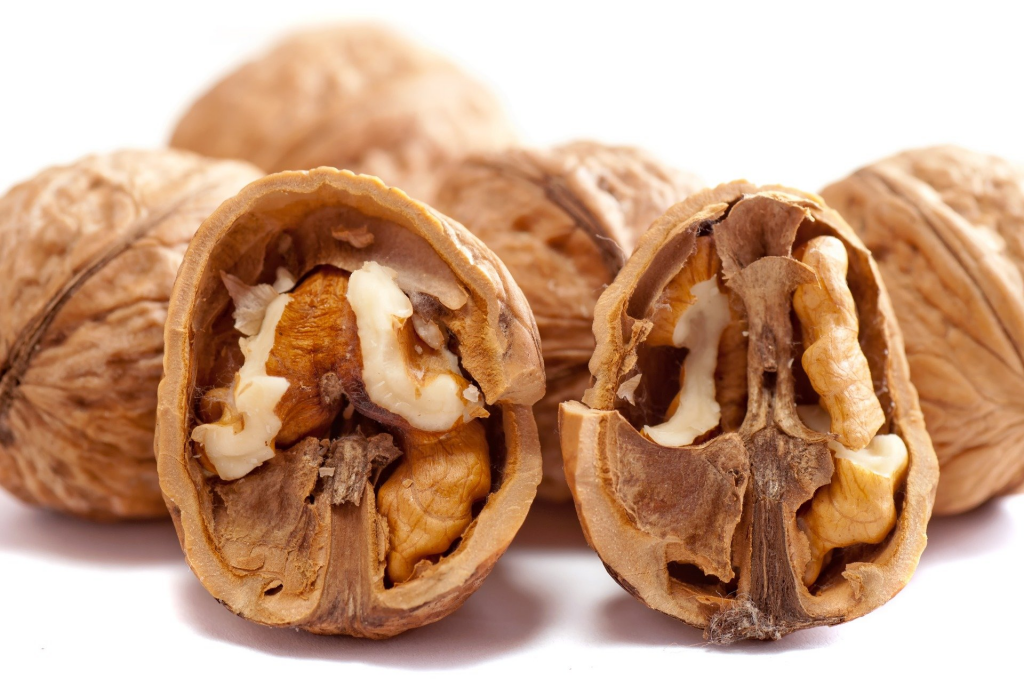Did you know that over 37 million Americans are living with diabetes, and millions more are considered prediabetic? Blood sugar control has become one of the most pressing health concerns of our time. While many turn to medication and strict diets, nature offers an overlooked ally that can make a real difference—walnuts.
These brain-shaped nuts are more than just a snack; they’re a powerhouse of nutrients that support heart health, brain function, and blood sugar regulation. Packed with omega-3 fatty acids, fiber, protein, and antioxidants, walnuts are among the healthiest foods you can add to your daily diet. Some even call them “nature’s little pharmacy” because of their impressive impact on everything from cholesterol to inflammation.
This article will reveal why walnuts are considered a nutritional treasure, especially for those concerned about blood sugar and overall wellness. You’ll learn how they work, the science behind their benefits, and practical ways to include them in your lifestyle. By the end, you’ll understand why this humble nut deserves a permanent place in your pantry.

Why Walnuts Deserve Special Attention
A Nutrient Profile That Stands Out
Unlike many other nuts, walnuts are especially rich in alpha-linolenic acid (ALA), a plant-based omega-3 fatty acid. They also provide protein, fiber, and key minerals like magnesium, phosphorus, and copper.
Nutritional Breakdown (per 1 oz / about 7 walnuts):
- Calories: 185
- Protein: 4 g
- Fiber: 2 g
- Fat: 18 g (13 g polyunsaturated)
- Omega-3 ALA: 2.5 g
- Magnesium: 45 mg
- Vitamin B6: 0.2 mg
Why They’re Different From Other Nuts
Most nuts contain healthy fats, but walnuts are unique for their high omega-3 content. This makes them particularly effective in reducing inflammation and supporting heart and brain health.

Walnuts and Blood Sugar: What the Science Says
Supporting Insulin Sensitivity
Research shows that regular walnut consumption may improve insulin sensitivity. This means your body uses insulin more efficiently, helping regulate blood sugar levels naturally.
High in Fiber, Low in Carbs
Walnuts are low in digestible carbohydrates but rich in fiber. Fiber slows digestion, preventing rapid spikes in blood sugar after meals.
Rich in Antioxidants
Polyphenols in walnuts help reduce oxidative stress, which plays a role in diabetes progression and related complications.
Case Example:
In one clinical trial, adults with type 2 diabetes who consumed walnuts daily for 3 months showed improved blood sugar control and reduced LDL cholesterol compared to those who didn’t include walnuts in their diet.

Other Health Benefits Beyond Blood Sugar
1. Heart Health Champion
Walnuts are known to lower LDL cholesterol and improve circulation. Their omega-3s and antioxidants protect against heart disease, the leading cause of death worldwide.
2. Brain Function and Memory
Shaped like the human brain, walnuts truly nourish cognitive health. Studies link walnut intake to improved memory, focus, and reduced risk of age-related cognitive decline.
3. Anti-Inflammatory Power
Chronic inflammation contributes to many diseases, from arthritis to cancer. Walnuts’ omega-3s and polyphenols help fight inflammation naturally.
4. Weight Management
Though calorie-dense, walnuts promote satiety. Eating them in moderation helps control cravings and supports healthy weight maintenance.

How to Incorporate Walnuts into Your Diet
Daily Serving Size
Nutritionists recommend about 1 ounce (a small handful or 7 whole walnuts) per day to enjoy their health benefits without overloading on calories.
Simple Ways to Enjoy Walnuts
- Add chopped walnuts to oatmeal or yogurt
- Blend into smoothies for creaminess and nutrition
- Sprinkle over salads for crunch and flavor
- Use walnut butter as a spread instead of peanut butter
- Snack on raw walnuts between meals
Recipe Idea: Walnut and Green Tea Combo
Pair walnuts with a cup of unsweetened green tea for a powerful antioxidant-rich snack that supports blood sugar balance and boosts metabolism.

Quick Reference: Walnut Benefits
| Health Concern | How Walnuts Help |
|---|---|
| Blood Sugar Control | Improve insulin sensitivity, add fiber |
| Heart Health | Reduce cholesterol, boost circulation |
| Brain Function | Enhance memory, reduce decline risk |
| Inflammation | Omega-3s and antioxidants fight it |
| Weight Management | Increase satiety, reduce cravings |
Real-Life Experiences
- James, 54: After adding walnuts to his daily breakfast, James noticed more stable blood sugar readings and fewer energy crashes in the afternoon.
- Marta, 62: Struggling with high cholesterol, she replaced processed snacks with walnuts. Within six months, her cholesterol numbers improved significantly.
- Daniel, 35: A busy professional, Daniel uses walnuts in smoothies. He finds it helps him stay full longer and keeps his mind sharp during long meetings.
Practical Tips for Best Results
- Choose raw or lightly roasted walnuts to preserve nutrients.
- Store them in the fridge or freezer to prevent rancidity.
- Avoid heavily salted or sugar-coated walnut products.
- Combine walnuts with other nutrient-rich foods for synergistic effects.
Conclusion
Frequently Asked Questions
Can walnuts lower blood sugar overnight?
Not instantly, but consistent consumption can improve long-term blood sugar regulation.
How many walnuts should I eat daily?
A handful (about 7 whole walnuts) is ideal for most adults.
Are walnuts safe for people with diabetes?
Yes, in moderation, they are considered beneficial for diabetes management.
What’s the best time to eat walnuts?
Anytime, but pairing them with meals helps slow digestion and reduce sugar spikes.
Walnuts are more than just a tasty nut—they’re a nutritional treasure that supports blood sugar balance, heart health, brain power, and much more. By making them a daily part of your diet, you can tap into their full range of benefits and take a simple, natural step toward better health.
Disclaimer: This article is for informational purposes only and does not replace professional medical advice. Always consult a qualified healthcare provider before making changes to your diet or health regimen.




